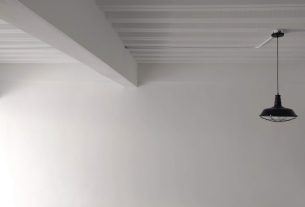Home organization and decluttering are essential practices for enhancing productivity and well-being, backed by scientific research showing that a minimalist home environment can lead to improved cognitive clarity and mental focus. By organizing belongings purposefully, designating specific areas for different activities, and maintaining order through regular tidying, homes can become more than just living spaces—they can be sanctuaries of productivity and tranquility. This systematic approach not only keeps the physical space neat but also benefits cognitive function, potentially improving work performance and daily life management. Embracing a decluttered lifestyle means strategic planning, categorizing items by use and preference, utilizing functional storage solutions, and consistently reevaluating what belongs in your living space. It's an ongoing commitment that involves daily, weekly, and monthly routines to manage clutter effectively. By adhering to these home organization principles, individuals can enjoy the benefits of a harmonious, clutter-free environment that contributes significantly to a calm lifestyle, increased productivity, and overall improved quality of life. Home Organization and Decluttering are key practices for maintaining such living spaces, with real-life examples demonstrating their effectiveness in both homes and workplaces, where decluttering efforts have led to increased efficiency, job satisfaction, and innovation.
Decluttering is more than a tidying trend; it’s a proven pathway to heightened productivity. Emerging research in the field of psychology and neuroscience reveals that organized, clutter-free spaces can significantly improve focus, efficiency, and overall task performance. This article delves into ‘The Science of Simplicity: How Decluttering Your Home Boosts Productivity’ and offers practical ‘Strategies for Effective Home Organization’ to create clutter-free zones. Transformative results are not just theoretical; ‘Transformative Results: Real-Life Examples of Decluttered Spaces Leading to Enhanced Efficiency and Focus’ showcases individuals who have experienced profound changes in their daily lives through home organization and decluttering, underscoring the tangible benefits of a streamlined environment.
- The Science of Simplicity: How Decluttering Your Home Boosts Productivity
- Strategies for Effective Home Organization: Creating Clutter-Free Zones
- Transformative Results: Real-Life Examples of Decluttered Spaces Leading to Enhanced Efficiency and Focus
The Science of Simplicity: How Decluttering Your Home Boosts Productivity
Home organization and decluttering are more than just tidying up; they represent a scientific approach to enhancing productivity. The science of simplicity, a concept supported by numerous studies, suggests that a clutter-free environment allows for clearer thinking and less mental load. When surfaces are bare and storage spaces are used effectively, the mind is freed from the visual and physical distractions that come with excess belongings. This reduction in stimuli enables individuals to focus more readily on tasks at hand, leading to improved concentration and performance.
A cluttered home can subconsciously overwhelm its inhabitants, making it difficult to concentrate on work or relax after a long day. Conversely, a well-organized space provides an environment that is conducive to both productivity and tranquility. By implementing simple organizational strategies—such as categorizing items, establishing clear zones for different activities, and maintaining consistent decluttering routines—homes can become sanctuaries of efficiency. This organized approach not only facilitates a more streamlined lifestyle but also supports cognitive functions, allowing individuals to work smarter, not harder, and achieve higher levels of productivity in their personal and professional lives.
Strategies for Effective Home Organization: Creating Clutter-Free Zones
Maintaining a clutter-free home is a cornerstone of effective organization and can significantly enhance productivity. To achieve this, it’s important to adopt strategic approaches that go beyond mere tidying. Home organization begins with a plan that categorizes items based on frequency of use, function, and personal preference. Start by assessing each area of your home, identifying zones used most often, and designating specific places for belongings. Implementing storage solutions that are both functional and aesthetically pleasing can help maintain order. Utilize vertical space with shelves or hanging organizers to maximize room without overcrowding surfaces. For items that are seasonal or infrequently used, consider clear, stackable bins that can be stored out of sight, yet easily accessible when needed.
Decluttering is an ongoing process rather than a one-time event. Establish routines for daily, weekly, and monthly decluttering to keep clutter at bay. For example, make it a habit to clear off countertops and tidy up at the end of each day. During your weekly review, assess what has been used and what hasn’t, and make decisions about items that no longer serve a purpose or bring joy. Lastly, when bringing new items into your home, be mindful and ask yourself if they align with your organized lifestyle and whether they have a designated spot. By consistently applying these strategies for home organization, you can create clutter-free zones that foster a sense of calm, enhance productivity, and improve overall well-being.
Transformative Results: Real-Life Examples of Decluttered Spaces Leading to Enhanced Efficiency and Focus
A transformative shift in both efficiency and focus can be achieved through the simple yet impactful act of decluttering one’s home, as evidenced by a wealth of real-life examples. Take for instance, the case of individuals who have adopted comprehensive home organization practices. By systematically categorizing possessions and discarding what is no longer useful or necessary, these individuals have reported a significant reduction in daily stress levels. This streamlining of personal spaces has not only led to an overall sense of well-being but has also facilitated a clearer mind for task completion. The physical decluttering serves as a visual metaphor for mental clarity, allowing homeowners to concentrate better on the tasks at hand without the cognitive clutter that comes with a disorganized environment.
Another striking example is observed in workplaces where clutter has historically been an issue. By implementing decluttering strategies, businesses have seen a marked increase in employee productivity and job satisfaction. A study of a major tech company demonstrated this clearly; after reorganizing their office space to eliminate unnecessary items and streamline the layout for optimal use, employees were able to complete tasks more efficiently and with fewer distractions. This organizational overhaul not only enhanced individual performance but also fostered a collaborative environment conducive to innovation and creativity. The principles of home organization, when applied in professional settings, underscore the importance of a clutter-free area for achieving peak productivity and maintaining a sharp focus.
decluttered spaces, productivity, home organization, efficiency, focus, decluttering benefits, organized living.
In conclusion, the pursuit of a clutter-free home environment is more than a mere tidying effort; it’s a strategic approach to enhancing productivity and fostering an efficient, focused lifestyle. The science of simplicity confirms that by embracing home organization principles, we can create spaces that support our goals rather than hinder them. Real-life examples further illustrate the transformative impact of decluttering on daily efficiency and concentration. Embracing a minimalist mindset and adopting targeted organization strategies can significantly improve one’s quality of life. Therefore, for those seeking to optimize their productivity and well-being, considering the practice of home organization and decluttering is a step well worth taking.



